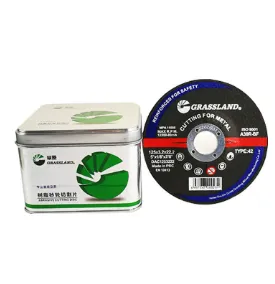

Durability is a key quality for any cutting wheel, particularly when cutting through tough masonry materials. Diamond wheels are often more expensive but offer a longer life span and can handle heavy-duty tasks with ease. In the long run, investing in a high-quality diamond wheel can be more cost-effective due to fewer replacements and repairs. Safety considerations should never be overlooked. Always ensure that your cutting wheel comes from a reputable manufacturer that adheres to industry safety standards. Additionally, personal protective equipment (PPE) such as goggles, gloves, and dust masks should be worn to protect against flying debris and dust exposure during cutting operations. In terms of expertise, consulting with professionals or conducting thorough research can provide valuable insights into which cutting wheel is best suited for your specific needs. Online forums, customer reviews, and industry publications can be excellent sources of information. Furthermore, many suppliers offer technical support and guidance to help you choose the most appropriate cutting wheel for your projects. In conclusion, selecting the right masonry cutting wheel for your drill requires a careful assessment of factors such as material compatibility, arbor size, RPM rating, and durability. Prioritizing these aspects not only ensures high-quality cuts but also enhances safety and efficiency. As technology advances, manufacturers continue to enhance the quality and capabilities of masonry cutting wheels, making it imperative to stay informed about the latest developments in the field. This knowledge empowers you to make decisions that are both economically and practically sound, ultimately contributing to successful project outcomes and a safer working environment.
Post time:Feb - 14 - 2025

















